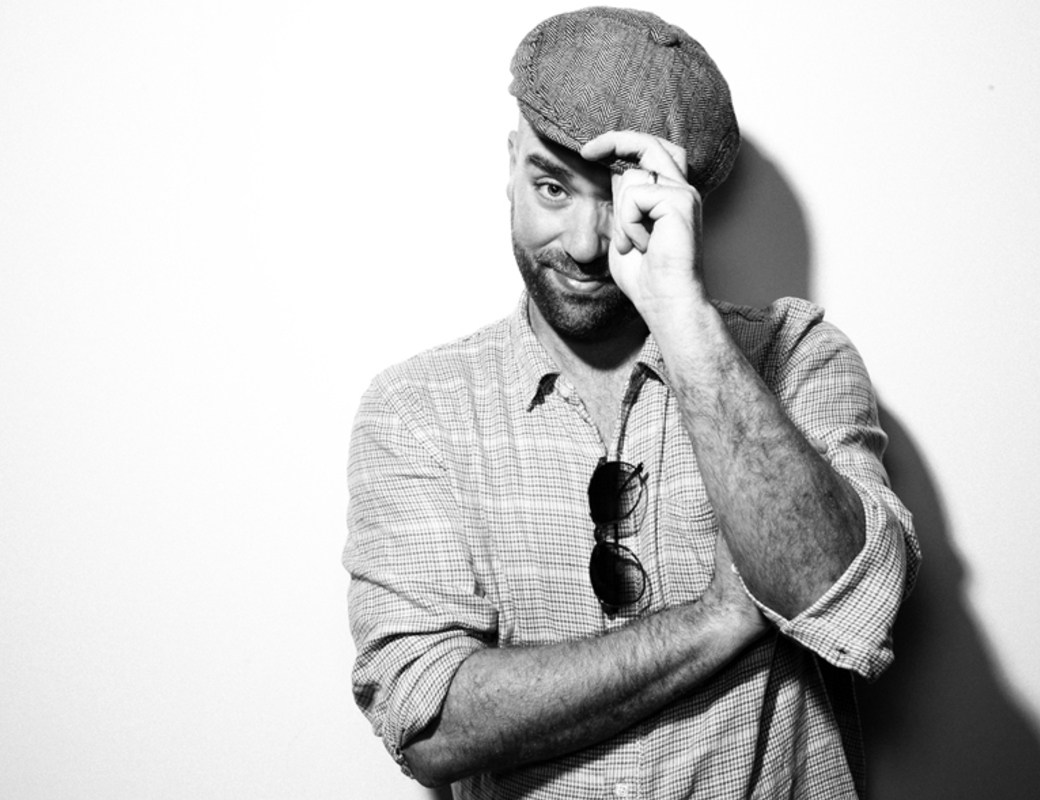Gijs Van Der Most - Shaping A Kinder Future For Food And Tech
When we think about making big, positive changes in our world, particularly in how we grow food and how we use smart technology, it's almost like we're looking for folks who truly see the bigger picture. Someone who can help us connect the dots between caring for our land and building tools that genuinely serve people. This kind of thoughtful approach, which really brings together different ideas, is what helps us move forward, creating better ways to live and work.
It’s about seeing beyond the immediate needs and considering the long game for our planet and everyone on it. Think about the way some people are working to make farming practices kinder to the earth, or how others are making powerful digital tools more accessible and helpful for everyday folks. These efforts, you know, are all part of a larger push to build a world that feels more balanced and fair for everyone.
This path forward, in some respects, asks us to think about how individuals, perhaps like a Gijs van der Most, can influence these important shifts. It’s about exploring how a focus on things like growing food in ways that heal the earth, or making advanced conversational technology widely available, can truly make a difference in our daily lives and for future generations. We’re talking about real, practical steps that help shape a more thoughtful and connected world.
- Victoria Gotti
- Shocker Candy
- Country Groups From The 90s
- Project X True Story Corey Delaney
- Iran Population April 2025
Table of Contents
- A Fresh Look at Food and Farming
- What Does a Gijs van der Most Approach Mean for Agriculture?
- Measuring the Good: How Do We Know We're Making a Difference?
- The Gijs van der Most Mindset Change in Action
- Tackling Big Challenges with Thoughtful Farming
- How Might Gijs van der Most See the Future of Food Systems?
- Connecting People with Smart Technology
- What is the Gijs van der Most Vision for Accessible AI?
A Fresh Look at Food and Farming
There's a quiet revolution happening in how we think about growing what we eat and the materials we use for clothing. It's about moving away from older ways that sometimes hurt the land, and moving towards methods that actually help the earth heal. This shift, in some respects, involves helping food and fiber businesses figure out how to plan, put into practice, and then check the real-world results of their move to what's called 'regenerative agriculture'. It's a big step, you know, and it means thinking about farming not just as something that takes from the earth, but as something that gives back.
This whole idea is pretty important for anyone who cares about where their food comes from, or even the shirts they wear. It’s about working with businesses to design ways of farming that build up the soil, make the land healthier, and create a better home for all sorts of plants and creatures. When we talk about this kind of change, we're really talking about a complete rethinking of how we interact with our natural surroundings, making sure our actions today help create a more abundant tomorrow.
For a person like Gijs van der Most, someone who might champion these ideas, it's about helping companies make this change smoothly. It means offering support at every step, from the very first plans to seeing the good effects of these new ways of working. This kind of help is pretty important, because it makes it easier for businesses to adopt practices that are better for everyone, including the planet itself. It's a very practical way to make a difference, actually, by supporting those who are ready to make the switch.
- Where Is Project X Based
- Prosecutor Oj Simpson
- Love And Humor
- How Many People Live In Iran 2025
- Rob Drydek
What Does a Gijs van der Most Approach Mean for Agriculture?
Thinking about how a Gijs van der Most might approach agriculture, it really starts with a deep belief in change. Clare Hill, who helps lead the way in regenerative agriculture at FAI Farms, points out that a big part of making this shift work is getting everyone to change their way of thinking. It's not just about trying out new tools or techniques; it's about seeing the whole picture differently. This means understanding that how we farm affects everything, from the tiniest bugs in the soil to the quality of the air we breathe. It's a holistic view, you know, where every part matters.
This approach involves really getting into the idea that farming can actually fix some of the problems we see in the world, like climate issues and the loss of different kinds of life. It means looking at the farm as a living system, where everything is connected. So, for someone like Gijs van der Most, it would mean encouraging farmers to adopt practices that help the soil store more carbon, invite more wildlife back to the land, and make their operations more lasting. It's a very forward-thinking way to grow food, actually, that looks out for the health of the earth for years to come.
Consider FAI Farm in Oxford, for example. They were already farming organically, which is pretty good, but they recently decided to take things a step further. They chose to change their livestock operation to regenerative farming. This move, you see, shows that even farms doing good work can always find ways to do better. It highlights the idea that progress is always possible, and that embracing new, earth-friendly methods is a continuous journey. This kind of commitment, you know, is what a Gijs van der Most would likely champion, showing that real change is possible and worth the effort.
Measuring the Good: How Do We Know We're Making a Difference?
When you're trying to make big changes, especially in something as important as how we grow our food, it's pretty vital to know if what you're doing is actually working. We need ways to keep an eye on things and measure the results. This means having clear methods for checking the health of the soil, seeing if more different kinds of plants and animals are returning, and understanding how these new farming ways are helping to reduce the amount of carbon in the air. It’s not enough to just hope for the best, you know; we really need to see the proof.
For instance, exploring how regenerative grazing practices at places like FAI Farms help the soil hold onto carbon, increase the variety of life, and make things more lasting, is a big part of this. These efforts are a bit like putting money in a savings account for the planet, helping us reach goals like being carbon neutral by 2040. It's about showing, with real information, that these kinder ways of farming are not just good ideas, but are actually making a concrete difference. This kind of clear reporting, you see, builds trust and encourages others to follow suit.
The whole point of this is to make sure that the positive changes we’re working towards are actually happening. It’s about using good information and careful checking to prove that regenerative agriculture is a really strong, hands-on, and open way to handle carbon in a thoughtful manner. It helps build up the ability to deal with climate challenges, create fairer money situations, and support good social outcomes. So, you know, measuring is not just about numbers; it's about showing that these new ways of doing things are truly helping people and the planet.
The Gijs van der Most Mindset Change in Action
If we think about the kind of mindset a Gijs van der Most would encourage, it's one that deeply understands the need for constant improvement and the value of clear results. At FAI, the goal is to bring about good changes across the food and farming industries by working hand-in-hand with clients. They are there every step of the way on a client's journey toward being more sustainable and caring for animal well-being. This partnership approach, you know, is pretty central to making real shifts happen, because it's about working together rather than just telling people what to do.
They are a group that uses information and careful study to help others. This means they are not just guessing; they are using real facts to guide their advice. This kind of data-driven approach is very important when you're asking people to change long-held practices. It helps to show that the new ways are not just ideas, but are supported by evidence. So, in some respects, it's about building a bridge between what we know and what we do, making sure our actions are based on solid ground.
Learning how to take an approach that looks at the whole farm as an ecosystem can really help reduce or get rid of those really expensive costs, both financially and for the environment. It can also stop sickness, help the soil hold onto carbon, and lessen the bad effects of things like extreme weather. This is where the Gijs van der Most mindset truly shines, focusing on practical solutions that bring multiple benefits. It’s about being smart with our resources, protecting our planet, and actually making farming more profitable and resilient for those who do the work.
Tackling Big Challenges with Thoughtful Farming
The world faces some pretty significant challenges right now, like changes in the climate, losing different kinds of plants and animals, and making sure everyone has enough to eat. These are big, interconnected issues that require a really thoughtful and comprehensive response. It’s not just about one thing, you know, but about how all these parts fit together. Thoughtful farming, the kind that aims to heal and restore, is a big part of finding solutions to these large-scale problems.
This kind of farming offers a really strong, hands-on, and open way to handle carbon in a sustainable way. It helps build up the ability to deal with climate challenges, create fairer money situations for farmers, and support good social outcomes in communities. It’s about seeing that the health of our planet, our economies, and our societies are all tied together. So, when we talk about changing how we farm, we’re actually talking about addressing some of the

Gijs Van Der Most: 5 Key Insights Revealed
:max_bytes(150000):strip_icc():focal(978x499:980x501)/michelle-buteau-gijs-van-der-most-1-c5b1ab9d44654b5d9f979da253b7bc42.jpg)
Unveiling The Life Of Gijs Van Der Most: A Comprehensive Biography

Unveiling The Life Of Gijs Van Der Most: A Comprehensive Biography